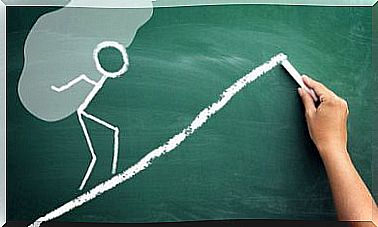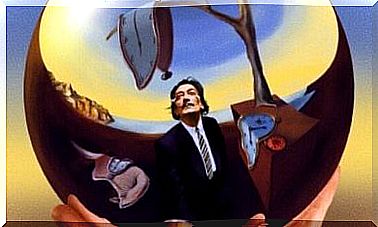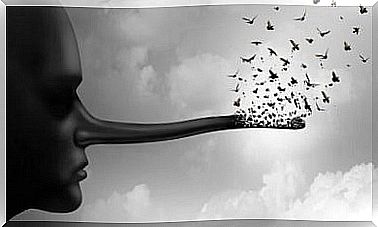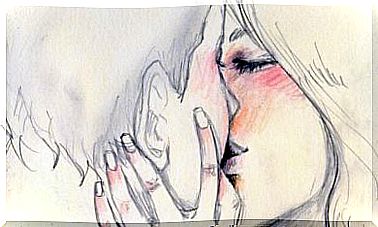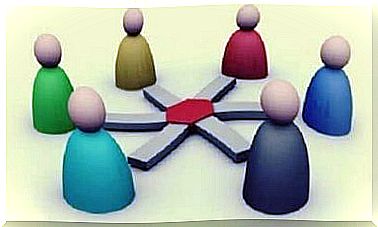Emotional Anxiety: A Paralyzing Fear

Emotional anxiety is like a whirlpool that captures everything. It captivates us within ourselves and fills us with fear, anxiety, restlessness and even overwhelming sadness. It is a kaleidoscope of negative, disabling emotions.
Bying-Chui Han – a well-known South Korean philosopher and cultural studies expert – defines our world as the “burnout society.” If there is one thing we all have in common, it is anxiety and emotional anxiety. For Him, the reason for all this lies in our performance culture, where we try to direct our children towards working towards success in all aspects of their existence.
Therefore, we experience pressure from society to persevere and achieve success. Furthermore, we live in a culture of “multi-tasking” that is introduced to us at an early age. You have to do many things at once and in a very short time. It is the law of the jungle, where not everyone can survive or integrate effectively and where it is common to get caught up in anxiety.
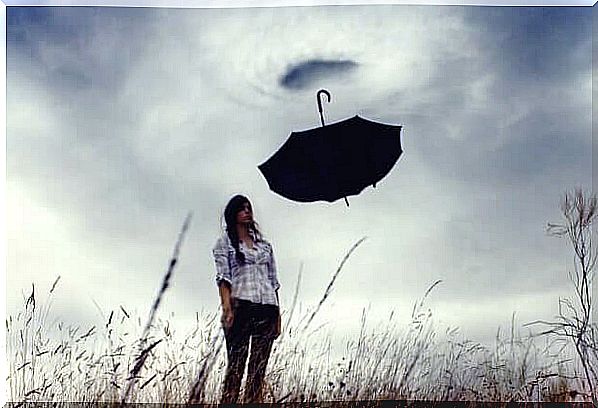
When we talk about emotional anxiety, the same problem always arises. Is anguish the same as anxiety? Or are they two different psychological states? Until recently, we left the term anxiety in the philosophical world, separated from clinical conditions.
Soren Kierkegaard, for example, defined it as the fear we experience when we realize that our future is uncertain. Therefore, our quality of life will depend on the choices we make.
Sigmund Freud, on the other hand, distinguished between “anxiety neurosis” and “true anxiety”, where the latter was a pathological condition. It differs from the strictly philosophical reflections.
We can say that there are basically two types of anxiety: one called existential and another defined by the Diagnostic and Statistical Manual of Mental Disorders (DSM-V), which often appears as a symptom of many psychological conditions.
Emotional anxiety paralyzes us. Anxiety can often be a trigger for nervousness, but anxiety is like a protective pillow in times of uncertainty about something we cannot control or predict.
When this uncertainty arises, the anxiety worsens. Obsessed with catastrophic thoughts and worries arise. Things like writing a test, making a decision, waiting for an answer or even facing something we do not feel we are capable of can often generate anxiety.
There are also studies that show that there are people who are more receptive to experiencing this. This is due to neurochemical reactions produced by hormones and neurotransmitters. Therefore, an increase in adrenaline or a decrease in gamma-aminobutyric acid (GABA) can make us more or less predisposed to anxiety.
Emotional anxiety has many physical symptoms, such as dizziness, digestive problems, chest tightness, fatigue and muscle tension.

Poets, writers and artists channel their emotional anxiety through diet. Most of them have experienced this condition. It is a recurring feeling in humans because we can hardly disconnect completely from this understandable feeling of emptiness when we look at ourselves and the future. But we must do something when this feeling hinders and pushes us into a corner of helplessness.
Once again, Byung-Chul’s idea reminds us that we coexist with uncertainty. And uncertainty is the direct trigger for emotional anxiety. Anyone who believes that this condition can be solved with psychiatric drugs is therefore wrong (as long as it is not serious). What we need to do is learn to deal with the ups and downs of life, better deal with the unpredictable and deal with things that are far beyond our control.
We have different approaches to tackling this problem. Cognitive behavioral therapy, acceptance and mindfulness-based cognitive therapy (MBCT) can help in many ways. On the one hand, they can help reduce and manage our anxiety, negative thoughts and negative emotions; on the other hand, they can also help us tackle the root problem.
Let us change our attitude in order to gain more strength and take responsibility for ourselves in this complex and demanding world.
